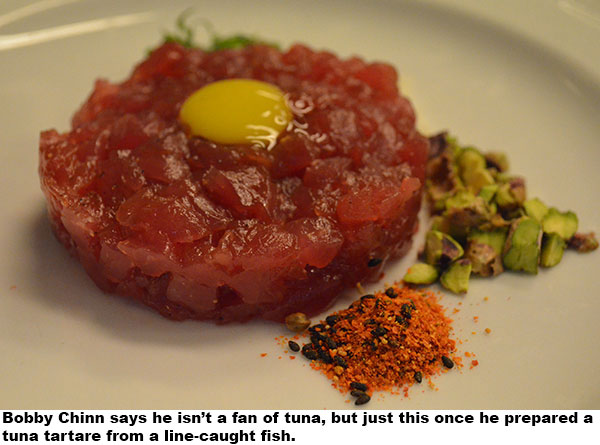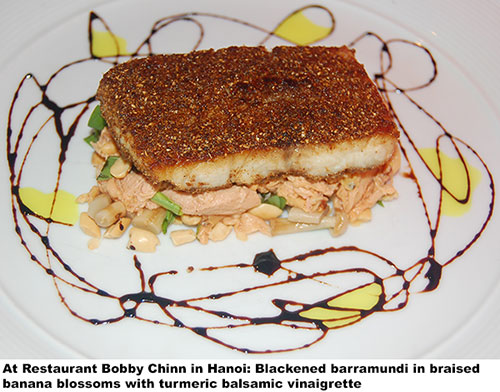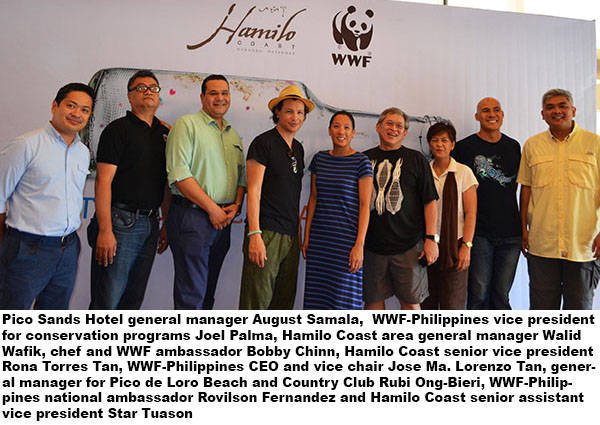Bobby Chinn: ‘Diners now want to know where their food comes from’
MANILA, Philippines - Responsible and well-educated diners know that good food is no longer just a matter of flavor. The provenance of each delectable morsel on your plate is equally important, so that when you realize that environments are compromised and animal populations are threatened by consuming a delicacy, there is a tendency to lose one’s appetite for a particular kind of food.

Really, it would be difficult to remain enthusiastic and concentrate only on flavor when you have violent images showing how the food was caught running through your head. For example, think about the uploaded videos on the Internet where tuna in the Mediterranean are herded and surrounded before the fishermen hone in for the kill. The giant fish transform into a squirming, desperate and helpless mass, and the sea turns bloody red as they are speared dead. Unless one is especially bloodthirsty, it would be difficult to swallow it all and condone the brutality of such fishing methods.

Closer to home, there is a growing concern for the ecological well-being of the so-called Coral Triangle, which is recognized as the “world’s epicenter of marine life and abundance.” With a growing population in the region and an increased demand for seafood, unsustainable or illegal fishing methods have complicated the problem of keeping coral reefs intact. Since coral reefs provide shelter and breeding areas for many species of fish, bottom trawling and dynamite fishing result in dwindling fish populations. Consequently, a smaller catch for an individual fisherman increases the likelihood that his family will go hungry.

“Forty million Filipinos depend on seafood for livelihood,” shares World Wildlife Fund (WWF) Philippines CEO Jose Ma. Lorenzo Tan. “The seas feed human life and we need to find a way to keep our oceans healthy. The challenge is in being able to strike a balance to creating protected areas while providing livelihood for those who depend on fishing.” He believes that “Solutions are neither black nor white. Balance will give us a better way to move forward.”
Since education is integral to responsible seafood consumption and conservation of marine resources, it is fortunate that celebrity chefs like Bobby Chinn lend their support to WWF in promoting consumer awareness on issues concerning seafood production, retail and consumption to help address the issue of dwindling fish resources in the Coral Triangle.
Chinn is an award-winning TV host best known for his humor. However, he is dead serious when he says, “As seafood consumers, we all have a responsibility to ensure that the fish we eat comes from sustainable sources, or were caught in ways that aren’t harmful to the marine environment. This helps conserve our food supply, and the livelihoods of millions of people who depend on the ocean’s bounty.”
After lunch at Hamilo Coast in Batangas, Chinn related that his experience as a recreational diver (“with about 40 dives to my name”) has allowed him to appreciate the diversity of marine life. “It is very peaceful when you are diving, and it is easier to enlist support from people who know what it’s like down there.”
He observes that things have changed since he first started cooking and diners are more conscious about wanting to know where their food comes from. Knowing about chemical contamination and mercury content, he is upfront about the fact that tuna is not one of his favorites. “It has a metallic taste,“ he says. “People didn’t really care where their food came from when I first started cooking, but nowadays traceability is much more important. The movement is only going to get stronger.”
Nowadays Chinn spends more time at his newly opened House of Ho restaurant in the Soho district of London’s West End. But a few days after talking to him in the Philippines, we found ourselves in Hanoi. At the highly rated Restaurant Bobby Chinn in Xuan Dieu Street in the Tay Ho District, we dined on blackened barramundi in braised banana blossoms with turmeric balsamic vinaigrette and skinned sous vide salmon on wasabi mashed potatoes with vegetables and ginger demi-glace. The menu didn’t consist of exotic or endangered food. Nevertheless, all ingredients were traceable, delicious and satisfying —proof, once again, that endangered ingredients are not necessary to be able to cook exemplary meals.



















